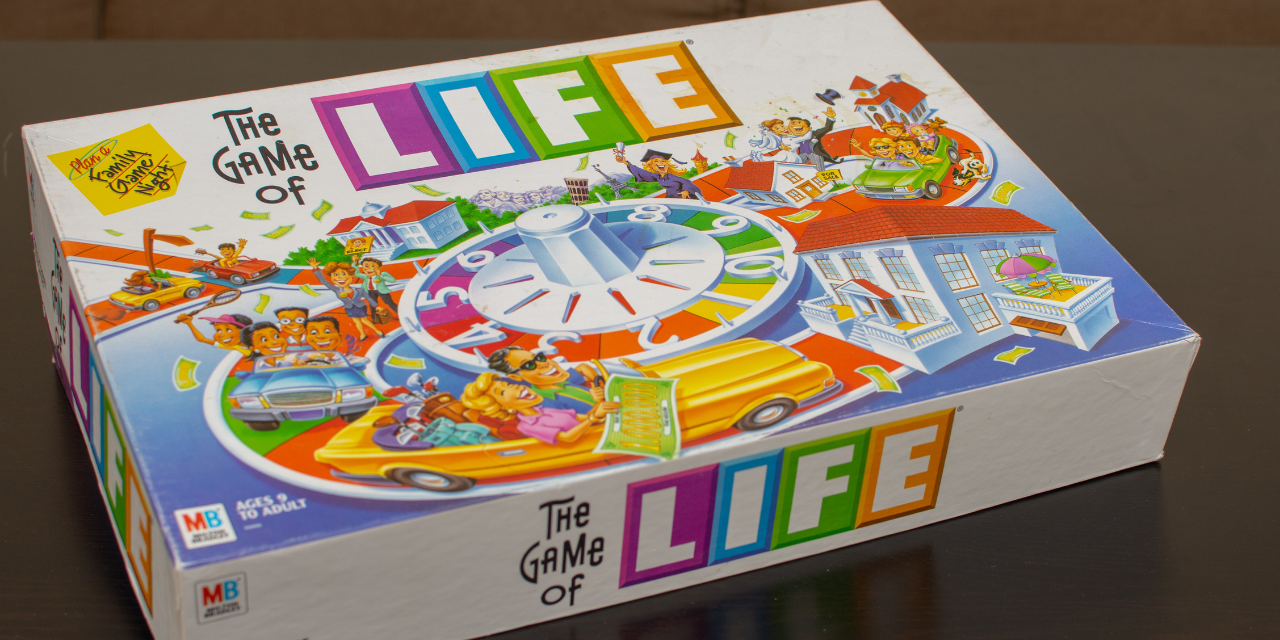It’s likely you’ve never heard of Reuben Klamer, the Ohio-born inventor and entrepreneur credited with being the mastermind behind the “Game of Life” – the ubiquitous board game that’s been a staple of family entertainment since 1960.
Mr. Klamer, who died on September 14th at the age of 99, manufactured and sold the hula hoop with Art Linkletter, in addition to designing hundreds of other toys. But it was the 3D board game featuring plastic bridges, cars with pink and blue sticks and the quest for success for which the intrepid and enterprising businessman was best known.
With over 70 million copies sold in 59 countries, the “Game of Life” is the second-bestselling board game of all time, next to “Monopoly.”
But if Reuben Klamer had gotten his way, it may never have been.
It was the late 1950s when Klamer, a former advertising man and marketer, pitched the idea for an art kit for children to the Milton Bradley Company. His idea was rejected – but they asked him to come up with a board game to help celebrate the company’s upcoming 100thbirthday in 1960.
For inspiration, Klamer turned to Milton Bradley’s first board game in 1860 which put the company on the map, “The Checkered Game of Life.”
It was the writer of Ecclesiastes who observed “there is nothing new under the sun” (1:9), and in fact, Bradley’s invention is said to have been inspired by a board game sold in London in 1790, which was called the “New Game of Human Life.” Yet, that game is said to stem from the “Royal Game of Goose” – a sixteenth -entury creation out of Florence, Italy.
According to Jill Lepore, a professor of American History at Harvard:
“It was this central Christian allegory that (as its instructions asserted) gave the New Game of Human Life its ‘utility and moral tendency.’ Parents were advised to play with their children and ‘request their attention to a few moral and judicious observations explanatory of each Character as they proceed & contrast the happiness of a Virtuous & well spent life with the fatal consequences arriving from Vicious & Immoral pursuits.’”
Other board games of a similar theme included the “Mansion of Bliss” and the “Mansion of Happiness,” the latter of which first appeared in the United States in 1843. Its rules began with these lines:
“At this amusement each will find a moral fit to improve the mind; It gives to those their proper due, Who various paths of vice pursue, And shows (while vice destruction brings) That GOOD from every virtue springs. Be virtuous then and forward press, To gain the seat of HAPPINESS.”
Decades later, Milton Bradley attempted to persuade shopkeepers to carry his new game by stressing its benefits for children, calling it “a highly moral game … that encourages children to lead exemplary lives and entertain both old and young with the spirit of friendly competition.”
But regardless of the century or the setting, the theme behind the versions of the games were similar – a belief that life is an adventure and a journey requiring its travelers to navigate between the tensions and threats of vices and virtues.
In short, the versions of the games from the 1700s, 1800s and 1900s were all based on a theory that there’s a success sequence in life – and that you when you follow certain steps in a particular order, you’re more likely to do well.
Even as a young boy playing the board game in our basement or on the porch – and even before I understood where babies came from – it made sense to me to get married before having children. It was common sense that education predated a financially lucrative job, debt was bad – and that in order to own a home, you better be able to pay the bills.
But is life really a game one can predict with such certainty? Are we always rewarded for doing the right thing?
The Book of Proverbs suggests that healthy, honest and upright living is more likely to lead to a happier and more successful life. But its wise and practical adages are probabilities – not rock-ribbed promises. As much as we don’t like it, because of sin, bad things still happen to people who do the right thing.
Reuben Klamer, who was married and divorced twice and lost a son in 2016, endured his share of challenges throughout his century-long journey. At the age of 90, the serial entrepreneur said his life “has been one rocky road after the other, and every once in a while, I get a hit.”
At the end of the “Game of Life,” the player with the most money wins – something that all too many believe happens in real life, too.
Thankfully, as Christians, we know the true “Mansion of Happiness” will never be found in this life – but in the life to come.
Photo from Shutterstock.






